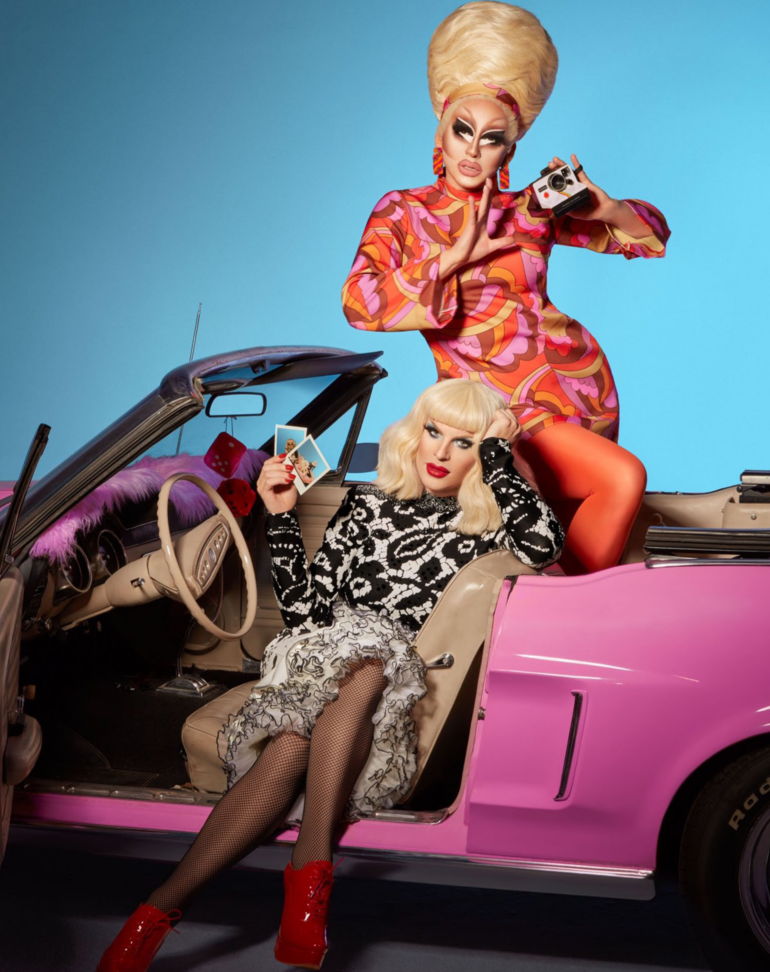This article originally appeared in Campaign US.
When RuPaul’s Drag Race (RPDR) first aired in 2009, it was a quirky little show with a terrible filter and a small fanbase.
Cut to today, it’s grown from a guilty pleasure among the few and the fierce, to a commercial success and a defining part of the zeitgeist.
But what transformed the humble show into a cultural juggernaut?
Four words: Charisma, Uniqueness, Nerve and Talent.
If you’ve ever seen RPDR, you’ve heard them. They’re the judging criteria, an iconic catchphrase and a wink-nudge joke. They also encapsulate pivotal principles in brand-building – which have been core to the show’s enduring success.
Let’s take Charisma.
The magnetic je ne sais quoi that makes someone captivating. It’s what RuPaul has identified as “star quality” in performers like Luxx Noir London. It is also that iconic essence of the show that keeps audiences hooked, quoting soundbites and creating lore.
It’s similar to the “It” factor that brands like Apple possess. It’s why there are millions of devoted Apple fans (myself included) who can’t fully articulate why they are so bought in. Yes, Apple makes gorgeous, quality products, but so does the competition; which points to a critical piece of the equation: Charisma.
Or, in brandspeak, “brand essence” – what Ipsos calls “the soul of the brand; the brand’s fundamental nature or quality.” Apple has long been clear about defining and delivering on this — so clear that it inspires loyalty globally, from Silicon Valley to Saltpond.
Which brings us to Uniqueness.
Let’s think of uniqueness as the anchor that grounds charisma. If charisma is the je ne sais quoi, uniqueness is the quoi – is the thing you can put your finger on.
An RPDR contestant’s uniqueness is measured by the originality of their drag — including their personal style, creative perspective and ability to bring something fresh to the stage. The show itself reflects this uniqueness. When it premiered, it was arguably its own category of TV: an amalgamation of familiar genres but wholly distinct, setting the stage for success.
One thing that distinguishes a great brand is a wholly ownable identity. Like people, brands flourish when they own what makes them special. That’s what Airbnb, Netflix and Dollar Shave Club did. As game-changing brands that disrupted the market, they dared to differ – and it paid big. It’s about getting clear and specific on what is unique about your brand’s purpose, promise, personality and offerings — and translating that across every aspect of the experience.
But it takes Nerve.
On RPDR, this could mean a performer ripping off a wig to reveal another (or two), or flinging herself into a mid-air pirouette and then plummeting into a split – and trusting she will land as planned. It is courage. Boldness. Sheer fearlessness. It’s the audacity to swing big.
At a time when drag was primarily enjoyed by an LGBTQ+ audience, celebrating and elevating drag as an art form was ballsy. It took nerve to air the show.
This mirrors moves by some iconic brands. For instance, when Nike supported Colin Kaepernick’s social justice stance, it was risky business. A prominent and well-loved brand, Nike stood to alienate a huge segment of its consumers – but it took the risk anyway. Yes, in the immediate aftermath of the Dream Crazy campaign, Nike took a hit. There were calls for boycotts and its stock price dipped. However, in the long run, this nervy move ramped up its revenue. Plus, the stock rebounded, with Nike’s market value soaring to an all-time high in 2019.
So, what is the role of talent?
Without talent, one could argue none of the above matters. On RPDR, talent is a mastery of dance, theater, sewing, applying opera-grade makeup, lip-syncing for your life and always having a fresh bag of tricks to delight fans. In practical terms, we could define talent as doing one’s job inimitably well.
This is another reason RPDR blossomed into a cultural mainstay: It absolutely excelled at its job of entertaining (and continues to). Combining reality TV, competition and drag culture, held together with humor and heart, it promised something both familiar and fresh. And it delivered.
This is also what brands like Google exhibit: big promise, big delivery. It’s no surprise that Google often tops out so many brand surveys. It consistently delivers on its promise to “organize the world’s information and make it universally accessible and useful.” Google does its job, and does it with a clarity and spark that exceeds expectations.
Brand-building goes beyond these four principles alone. But RPDR’s use of Charisma, Uniqueness, Nerve, and Talent is masterful and insightful, and it works (and werks) — and hopefully, it will work for your brand, too.
Condragulations, in advance!
Nana T. Baffour-Awuah is Associate Director, Brand Communication



